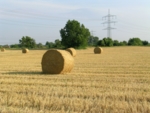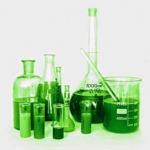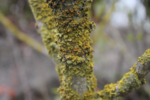Main navigation
Search Results
-
-
-
-
Database - 21/04/2016 https://www.biooekonomie-bw.de/en/databases/fundingFunding
-
Commitment for the future of the region https://www.biooekonomie-bw.de/en/bw/location/akteursplattform-biooekonomie-baden-wuerttemberg
Akteursplattform Bioökonomie Baden-Württemberg
-
-
-
-
-
-
-
-
-
Article - 10/01/2019 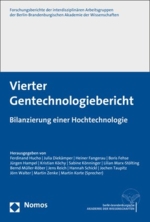
Stocktaking and recommendations for action: the BBAW’s fourth gene technology report
In the new gene technology report, the interdisciplinary working group of the Berlin-Brandenburg Academy of Sciences (BBAW) takes stock of gene technology developments in Germany during the past few decades, and discusses the societal, legal and ethical challenges associated with these technologies in the future. The report is highly topical due to the controversy surrounding the ruling of the European Court of Justice on CRISPR/Cas9 genome…
https://www.biooekonomie-bw.de/en/articles/news/stocktaking-and-recommendations-for-action-the-bbaws-fourth-gene-technology-report -
Article - 12/03/2019 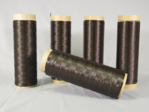
Biocarbon fibres made of lignin
Carbon fibre is increasingly found in airplanes, cars and wind turbines. Carbon fibre is still made from oil and relatively expensive. However, this is soon to change. Researchers from the German Institutes of Textile and Fibre Research in Denkendorf (DITF) are working on the development of cost-effective carbon fibre made of lignin, a by-product of papermaking.
https://www.biooekonomie-bw.de/en/articles/news/biocarbon-fibres-made-of-lignin -
Article - 11/02/2019 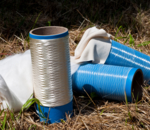
Natural biopolymers - the sustainable almost-all-rounders
Wood pulp as well as hemp and flax are renewable raw materials that can be processed into fibres of a new performance class using innovative technologies. They are environmentally friendly and help to solve waste problems. Products and processes for these fibres of the future are being developed at the DITF Denkendorf. They are suitable for textile and technical applications.
https://www.biooekonomie-bw.de/en/articles/news/natural-biopolymers-the-sustainable-almost-all-rounders -
-
-
-
-
-
-
Dossier - 23/09/2013 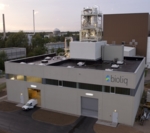
Bioeconomy a new model for industry and the economy
On the one hand, a bioeconomy relies on renewable resources to meet society’s need for food, energy and industrial products. On the other, it emphasises the role of biogenic material flows. The bioeconomy model is expected to reduce our dependency on fossil fuels in the long term. In order to implement the shift to a biobased economy on the regional level, the Baden-Württemberg government launched the Bioeconomy Research Strategy in summer 2013.
https://www.biooekonomie-bw.de/en/articles/dossiers/bioeconomy-a-new-model-for-industry-and-the-economy -
Article - 27/03/2019 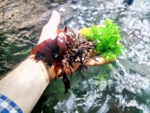
Residues from biogas plants as feed for algae
Algae are frugal organisms. They require only light, water, minerals and carbon dioxide to be able to produce biomass. These properties will now be exploited economically in a two-year research project. Dr. Stefan Sebök from the University of Hamburg plans to study the holistic utilisation of degradation products of a biogas plant in Wallerstädten by linking them to land-based algae cultivation.
https://www.biooekonomie-bw.de/en/articles/news/residues-from-biogas-plants-as-feed-for-algae -
Article - 21/03/2019 
Education as the key to a successful transition into a bioeconomy
National and international policy papers emphasize the role of the education sector in the transition into a bioeconomy. On the practical level, various actors are working on programmes to prepare professionals for future challenges. The University of Hohenheim, for example, offers a bioeconomy master's programme and is one of the universities that have laid the cornerstone for the “European Bioeconomy University” consortium.
https://www.biooekonomie-bw.de/en/articles/news/bildung-als-schluessel-fuer-eine-erfolgreiche-biooekonomie-transformation -
Article - 27/05/2019 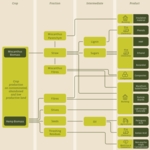
Providing Growledge - resources and products for the bioeconomy
Miscanthus and hemp are biomass plants that can be used as raw materials for a wide range of products and can be grown on land areas that are currently underutilised. A European consortium led by the University of Hohenheim in Baden-Württemberg has started a five-year project to demonstrate the economic potential of these plants.
https://www.biooekonomie-bw.de/en/articles/news/providing-growledge-resources-and-products-for-the-bioeconomy -
-
-
-
Dossier - 30/09/2014 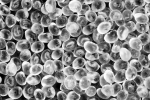
Industrial biotechnology a challenging change to the raw material base
Biogenic raw materials have never been as popular as they are now. Efforts to tap renewable carbon resources are already underway, despite the fact that new oil drilling technologies are boosting fossil fuel stockpiles. In the medium term, industry will have to expand its raw materials base, and in the long term it may have to renew it completely. Industrial biotechnology is one of the key technologies in the transition.
https://www.biooekonomie-bw.de/en/articles/dossiers/industrial-biotechnology-a-challenging-change-to-the-raw-material-base -
Dossier - 10/09/2012 
Horizon 2020 the EU framework programme for research and innovation a boost for top-level research in Europe
In the face of the ongoing financial crisis Europe is working on a new research strategy that is aimed at creating new economic growth and jobs. The new EU framework programme for research and innovation Horizon 2020 replaces the 7th Framework Programme FP7 and will run from 2014 with a budget of 80 billion. In July 2012 Brussels launched the final FP7 calls for proposals for 2013 that offer numerous market-based instruments designed to bridge…
https://www.biooekonomie-bw.de/en/articles/dossiers/horizon-2020-the-eu-framework-programme-for-research-and-innovation-a-boost-for-top-level-research-i -
Dossier - 20/03/2017 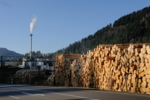
Lignin – a natural resource with huge potential
Petroleum is the raw material for basic chemicals. Growing demand and dwindling resources mean that the chemical industry is increasingly focusing on renewable resources. Lignin is a wood component that is proving to be a promising resource. It is currently almost exclusively used for generating energy, although it could also be used for other purposes. In Baden-Württemberg, a research consortium is specifically focused on exploring its…
https://www.biooekonomie-bw.de/en/articles/dossiers/lignin-a-natural-resource-with-huge-potential -
-
Dossier - 09/12/2013 
Industrial biotechnology biological resources for industrial processes
Industrial or white biotechnology uses microorganisms and enzymes to produce goods for industry, including chemicals, plastics, food, agricultural and pharmaceutical products and energy carriers. Renewable raw materials and increasingly also waste from agriculture and forestry are used for the manufacture of industrial goods.
https://www.biooekonomie-bw.de/en/articles/dossiers/industrial-biotechnology-biological-resources-for-industrial-processes -
Dossier - 16/12/2013 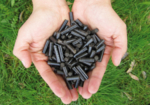
Microbial raw material recycling
While the use of biotechnological methods for the purification of water, soil and air has already been state of the art for quite a few years, the use of microorganisms for the recovery of metal and mineral raw materials from industrial and agricultural waste has also started to attract the interest of scientists. This dossier addresses this topic, explains what geobiotechnology and urban mining are all about.
https://www.biooekonomie-bw.de/en/articles/dossiers/microbial-raw-material-recycling -
Dossier - 14/05/2012 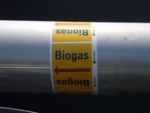
Biogas a promising source of renewable energy?
In addition to sunlight water and wind biogas is a regenerative source of energy that contributes to saving fossil resources. Germany is home to around 7100 biogas plants including 796 as of 2011 in Baden-Württemberg. In 2010 these facilities produced 11 per cent of the electricity generated from renewables in Germany. Energy-rich methane is the major constituent of biogas and is produced when organic compounds are broken down by bacteria in the…
https://www.biooekonomie-bw.de/en/articles/dossiers/biogas-a-promising-source-of-renewable-energy -
Dossier - 22/10/2012 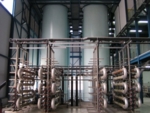
Environmental biotechnology
Biotechnologists are increasingly learning how to apply the knowledge about biological metabolic processes in the field of environmental protection including waste management and environmental rehabilitation. Environmental biotechnology is a field with great potential. In future bacteria and other microorganisms will most likely also contribute to sustainability and cost efficiency in other areas including the cosmetics and detergent industry as…
https://www.biooekonomie-bw.de/en/articles/dossiers/environmental-biotechnology -
Dossier - 08/07/2013 
Biodiversity in crisis
Biodiversity is essential for functioning, stable ecosystems and the wellbeing of the human race. Despite conventions, resolutions and action plans for the protection of biological diversity at all political levels, the decline of species diversity is increasing dramatically all over the world, including Germany. Targeted projects and funding measures have been put in place with the objective of stopping this deadly trend.
https://www.biooekonomie-bw.de/en/articles/dossiers/biodiversity-in-crisis -
Dossier - 09/04/2018 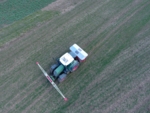
Digitisation in agriculture - from precision farming to farming 4.0
Automated steering systems, data-driven targeted application of fertilisers and pesticides, field robots and drones, soil analysis sensors, autonomous driving - digitisation is advancing in agriculture as elsewhere. The question asked by farmers and by society in general is whether the increasing adoption of digital technologies in agriculture is a curse or a blessing.
https://www.biooekonomie-bw.de/en/articles/dossiers/digitisation-in-agriculture-from-precision-farming-to-farming-40 -
Dossier - 15/04/2019 
The alternative: “bioplastics”
Plastic waste takes years to decompose and pollutes the environment. Nevertheless, plastics are an indispensable part of everyday life. It is therefore all the more important to find a meaningful alternative that is sustainable, environmentally friendly and has better properties and more functionality than conventional plastics. In addition, such an alternative should not be dependent in any way on fossil resources.
https://www.biooekonomie-bw.de/en/articles/dossiers/the-alternative-bioplastics -
Dossier - 08/03/2018 
Building sustainably - actively protecting the climate
Using renewable and recycled raw materials, minimising the use of water and energy during construction works and subsequent operation of a building, conserving resources and protecting the environment while maintaining biodiversity are all important components of sustainable building construction.
https://www.biooekonomie-bw.de/en/articles/dossiers/building-sustainably-actively-protecting-the-climate -
Dossier - 04/03/2019 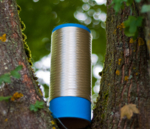
Sustainable textiles
Baden-Württemberg is known for innovation in textiles and for playing a decisive role in the development of sustainable textiles for the future both in the clothing and the booming technical textile sectors. Companies and research institutes are focused on making the entire textile value chain from raw materials, production and useful life to disposal more sustainable than ever before.
https://www.biooekonomie-bw.de/en/articles/dossiers/sustainable-textiles -
Article - 02/04/2019 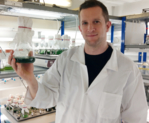
Simple sugar could soon compete with glyphosate
For many decades, glyphosate has been a common component of agricultural pesticides worldwide, although it is a controversial herbicide that may be harmful. The good news is that a more sustainable alternative is now in sight: researchers from the University of Tübingen have discovered a sugar molecule called 7-deoxy-sedoheptulose (7dSh) which inhibits the growth of plants and microorganisms, but appears to be completely harmless to human cells.
https://www.biooekonomie-bw.de/en/articles/news/simple-sugar-could-soon-compete-with-glyphosate -
-
-
-
-
Article - 08/05/2019 
Environmentally friendly alternative to fossil natural gas: methane from biomass
In cooperation with the research unit of the German Technical and Scientific Association for Gas and Water (DVGW), KIT researchers have built a pilot plant in which biogas produced by fermenting residual organic materials can be upgraded to synthetic methane (synthetic SNG). Biobased methane is not only a sustainable energy source for the heating and transport sectors, but also opens up new opportunities for temporary storage of renewable…
https://www.biooekonomie-bw.de/en/articles/news/environmentally-friendly-alternative-to-fossil-natural-gas-methane-from-biomass -
Dossier - 08/10/2012 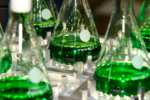
Marine biotechnology unknown sources of hope from the depths of the sea
Biotechnological methods are used to investigate marine life and the results obtained from these investigations advance research in the fields of medicine and energy and into substances used as food supplements and cosmetics. The area of marine biotechnology is fairly diverse. Although it is not on the coast even the southern German state of Baden-Württemberg is involved in marine biotechnology.
https://www.biooekonomie-bw.de/en/articles/dossiers/marine-biotechnology-unknown-sources-of-hope-from-the-depths-of-the-sea -
-
Dossier - 25/03/2013 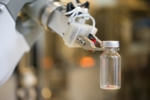
Biotechnology goes automated
Processes that previously required pipetting analysis and production to be carried out manually are increasingly now controlled by automated systems. However this has not necessarily involved a complete reinvention of the wheel instead automation systems used in the plant construction and mechanical engineering sectors are being adapted and optimised for application in the life sciences.
https://www.biooekonomie-bw.de/en/articles/dossiers/biotechnology-goes-automated -
Dossier - 02/06/2014 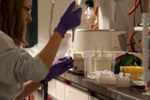
Bioanalysis techniques for the characterization of biological material
Science constantly provides researchers with new challenges biologists and bioanalysts have to deal with and which come from sources as varied as the ever increasing number of resistant pathogenic bacterial strains or the famine conditions in Third-World countries. In the search for scientific truths bioanalysis is the development optimization and application of the entire range of analytical methods available. However we need to keep in mind…
https://www.biooekonomie-bw.de/en/articles/dossiers/bioanalysis-techniques-for-the-characterization-of-biological-material -
Funding Erasmus for Young Entrepreneurs
Scholarship, Funded by: EUhttps://www.biooekonomie-bw.de/en/databases/funding/erasmus-for-young-entrepreneurs -
Article - 24/01/2019 
Scientists to combat antibiotic-resistant bacteria in wastewater
In Germany, around 1,500 tonnes of antibiotics per year are administered to humans and animals. As a result, more and more bacteria are developing resistance to common antibiotics. As part of HyReKA, a cooperative project funded by the BMBF, scientists led by Professor Thomas Schwartz from the KIT are investigating how antibiotic-resistant pathogens spread and how they can be prevented from doing so.
https://www.biooekonomie-bw.de/en/articles/news/scientists-to-combat-antibiotic-resistant-bacteria-in-wastewater -
Article - 30/01/2019 
candidum – computer-assisted enzyme design
Industry has been using enzymes for over a hundred years. While it initially had to content itself with natural enzymes, it is now increasingly possible to design tailor-made biocatalysts with specific properties. The start-up company candidum GmbH from Stuttgart promises to achieve this faster than ever before - mostly thanks to accelerated virtual screening.
https://www.biooekonomie-bw.de/en/articles/news/candidum-computer-assisted-enzyme-design -
Article - 19/09/2019 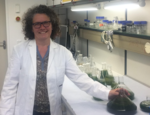
Magnetised algae as microrobots for medical and environmental purposes
Algae, for most of us, is something that lives in water courses that we occasionally find unpleasant. However, that is to do them a wrong. These extremely versatile and frugal organisms might in future prove to be extremely important. Scientists at the University of Stuttgart are investigating how algae can be used as microrobots in biomedicine and environmental remediation.
https://www.biooekonomie-bw.de/en/articles/news/magnetisierte-algen-als-mikroroboter-fuer-medizin-und-umwelt -
Funding Funding of the German Federal Environmental Foundation
Funding programme, Funded by: DBUhttps://www.biooekonomie-bw.de/en/databases/funding/funding-of-the-german-federal-environmental-foundation -
Funding Future Insight Prize
Funding programme, Funded by: Merck KGaA, sb_search.searchresult.label.programSubmissionDate: 31/12/2022https://www.biooekonomie-bw.de/en/databases/funding/future-insight-prize -
Article - 01/08/2019 
Clean water thanks to microplastics
He swam the entire length of the River Rhine to draw attention to the contamination of rivers and oceans with plastic waste. After completing his mammoth swim, Prof. Dr. Andreas Fath decided to kill two birds with one stone and do something useful with microplastics. At the Furtwangen University of Applied Sciences campus in Villingen-Schwenningen, Fath is working on a filter system made of plastic waste that can be used to remove pollutants from…
https://www.biooekonomie-bw.de/en/articles/news/Clean-water-thanks-to-microplastics -
Two-part interview part 1 | Prof. Dr. Regina Birner on the green genetic engineering debate - 12/08/2019 
Agricultural economist Birner calls for other forms of dialogue besides organized interest groups
Green genetic engineering continues to divide opinion in Germany in the same way as CRISPR/Cas and other genome editing (GE) techniques. What are the consequences for the bioeconomy, which involves key areas of biotechnology? We talked with Prof. Dr. Regina Birner, agricultural economist and head of Hohenheim University’s Department of Social and Institutional Change in Agricultural Development at the Institute of Agricultural and Social…
https://www.biooekonomie-bw.de/agricultural-economist-birner-calls-for-other-forms-of-dialogue-besides-organized-interest-groups -
Two-part interview part 2 | Prof. Dr. Ortwin Renn on the green genetic engineering debate - 26/08/2019 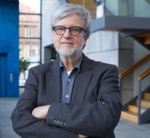
"Green genetic engineering is a scapegoat, but no longer an innocent one"
Many scientists are expecting revolutionary advances in research to come from new molecular biology tools such as the CRISPR/Cas gene scissors. These methods are very important for agriculture, especially plant breeding and nutrition. However, the debate on green genetic engineering 2.0 looks like it may once again be heading for ideological battles. We talked with Prof. Dr. Ortwin Renn and asked him about opportunities for better communication.
https://www.biooekonomie-bw.de/en/renn-green-genetic-engineering -
Article - 10/07/2019 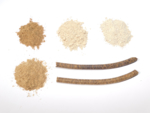
More than just a nut – new products for the bioeconomy
Plants are often used for one particular purpose only. However, walnut trees have much more to offer than just delicious nuts. The AlpBioEco project is studying the potential of walnut trees for the bioeconomy and how the potential can be exploited commercially. The international team of researchers is also focusing on apples and herbs.
https://www.biooekonomie-bw.de/en/articles/news/mehr-als-eine-harte-nuss-neue-produkte-fur-die-biookonomie -
Producing valuable new products from waste materials - 07/01/2020 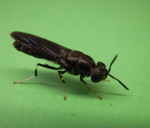
A vision: insect biorefineries as components of a sustainable bioeconomy
Eco-friendly and responsibly manufactured products are more in demand than ever before. Specific research is being carried out into materials and applications for a wide variety of uses. The Fraunhofer Institute for Interfacial Engineering and Biotechnology IGB is working with Hermetia Baruth GmbH on the vision of an insect biofactory that uses waste materials to produce a wide range of products such as biosurfactants, animal feed or foils.
https://www.biooekonomie-bw.de/en/articles/news/A-vision-insect-biorefineries-as-components-of-a-sustainable-bioeconomy -
Biosensors - 03/12/2019 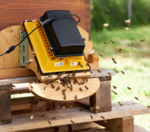
Learning from honey bees
Biosensors are used in medical diagnostics and food and environmental analyses, to name just a few examples. apic.ai, a start-up based in Karlsruhe, uses honey bees as bioindicators to gain insights into the state of the ecosystem. The company also uses artificial intelligence (AI) methods for their ecotoxicological investigations.
https://www.biooekonomie-bw.de/en/articles/news/learning-from-the-bees -
Biosensors - 09/04/2020 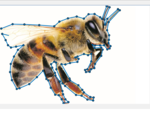
Sensors for the bioeconomy
Sensor networks are one of the keys to achieving digitalisation of the bioeconomy. Sensor networks are on the way to becoming important analysis and control instruments for energy-efficient and sustainable material cycles. Dieter Hertweck, Professor of Business Information Systems at Reutlingen University of Applied Sciences, shows what is already possible in digital agriculture and waste recycling and what is feasible for the future.
https://www.biooekonomie-bw.de/en/articles/news/Sensors-for-the-bioeconomy -
CRISPR/Cas9 and genetic engineering laws - 27/11/2019 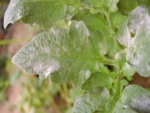
Transgene-free plant breeding using genome editing
Plant geneticists from Tübingen have used genome deletion to breed a variety of tomato that is resistant to powdery mildew. The CRISPR/Cas9 technology that they used enabled them to achieve this in a relatively short period of time. They also demonstrated beyond any doubt that the new tomato variety contains no foreign DNA and is indistinguishable from naturally occurring deletion mutants.
https://www.biooekonomie-bw.de/en/articles/news/transgene-free-plant-breeding-using-genome-editing -
Article - 21/10/2019 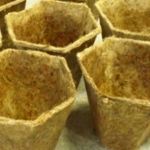
Plant pots made of natural fibres – "bio", no ifs or buts
Plastic plant pots are not good for the environment; strictly speaking, they should not even be disposed of in recycling bins. Alternatives such as coconut fibre pots are compostable, but not pollutant-free and not "bio" at all. The Karlsruhe-based company Fiber Engineering has developed a truly ecofriendly way to grow plants: pots made of hemp or grass, which are preserved with biological components and decompose completely within a…
https://www.biooekonomie-bw.de/en/articles/news/pflanztoepfe-aus-naturfasern-bio-ohne-wenn-und-aber -
Polysecure GmbH - 16/01/2020 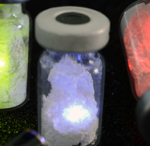
Recycling of the future – marked plastic as a circular product
Plastics are harmful to the climate and human health both during manufacture and combustion and they also clutter our planet with garbage. Recycling is therefore a key issue, but it is not efficient. Polysecure has developed a process for permanently marking individual plastics that enables them to be separated efficiently and returned to a circular economy. This would counteract the vast amount of (micro) plastics and reduce CO₂ emissions.
https://www.biooekonomie-bw.de/en/articles/recycling-of-the-future-marked-plastic-as-a-circular-product -
EIP-AGRI project coordination - 12/12/2019 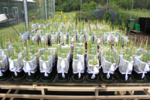
nadicom: “Rhizo-Linse” project – excellent small fertiliser factories
Lentil plants, rarely cultivated in Central Europe in the twentieth century, are making a comeback. The "Rhizo-Linse"1 EIP-AGRI project aims to reintroduce old lentil varieties and make them appealing to farmers. A company called nadicom Gesellschaft für angewandte Mikrobiologie mbH is working on the development of an ecological product consisting of nodule bacteria that can improve lentil plant growth.
https://www.biooekonomie-bw.de/en/articles/news/nadicom-Rhizo-Linse-project-excellent-small-fertiliser-factories
